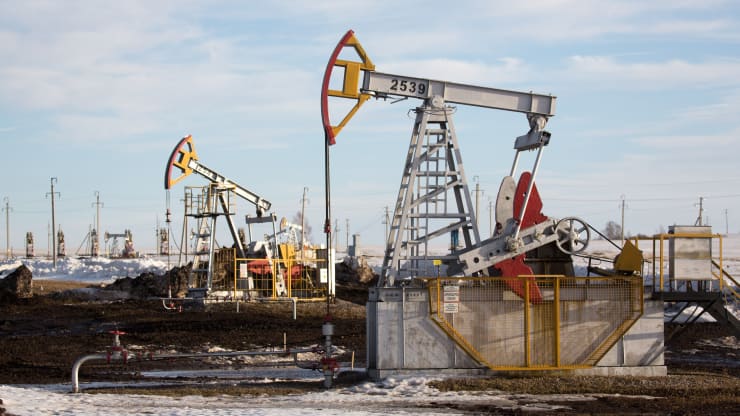- Oilfield Bid Round: FG May Generate N3.17bn From Fees
The Federal Government may generate at least N3.17bn from the payment of fees for the marginal fields put on offer for bidding, data obtained from the Department of Petroleum Resources have shown.
Indigenous oil firms and other investors willing to bid for any of the 57 marginal fields are expected to pay fees amounting to N55.6m per field.
The Director-General, Budget Office of the Federation, Ben Akabueze, had said last month that the government would accelerate marginal fields licensing and renewal of expiring oil mining licences as part of measures to augment revenues.
The DPR announced on Monday the start of the 2020 Marginal Field Bid Round, which “is open to indigenous companies and investors interested in participating in the exploration and production business in Nigeria”.
According to the agency’s guidelines, applicable fees are N500,000 for registration; N2m for application; N3m for bid processing; $15,000 for data prying; $25,000 for data leasing; $50,000 for competent persons’ report, and $25,000 for field-specific report.
Using an average exchange rate of N440/$ in the parallel foreign exchange market, the fees amount to N55.6m per field.
“In addition to the above-listed fees, the signature bonus shall be paid by successful bidders prior to award,” the DPR said.
According to the guidelines, registration, application and processing fees are to be paid into the Treasury Single Account; the fees for data leasing, data prying, CPR and field-specific report are to be paid into the National Data Repository account, and signature bonuses to be paid into the Federation Account.
Several industry stakeholders have described the fees as too high, given the current realities in the oil and gas industry, saying this could discourage many firms from participating in the exercise.
“I fully support the bid round but I think the fees are too exorbitant,” a former board member of the Nigerian National Petroleum Corporation, Alhaji Abdullahi Bukar, told our correspondent on Wednesday.
Stressing the need for the government to support industry players, Bukar said, “If they lower the fees, people who have the capacity to make investments will latch onto the opportunity.
“I don’t think it will be an all-comers’ affairs because everybody knows that the price of oil has crashed. What you will get are people who are serious.”
According to the DPR, the bid round is aimed at growing production capacity by expanding the scope of participation in Nigeria’s petroleum sector, and increasing oil and gas reserves base through aggressive exploration and development effort.
Other objectives include to promote indigenous participation in the sector, thereby fostering technological transfer, and to provide opportunity to gainfully engage the pool of high level technically competent Nigerians in the sector.

 Forex3 weeks ago
Forex3 weeks ago
 Naira3 weeks ago
Naira3 weeks ago
 Billionaire Watch2 weeks ago
Billionaire Watch2 weeks ago


 Naira3 weeks ago
Naira3 weeks ago




 Naira2 weeks ago
Naira2 weeks ago




 Naira1 week ago
Naira1 week ago




 Naira4 weeks ago
Naira4 weeks ago
 Banking Sector4 weeks ago
Banking Sector4 weeks ago
























